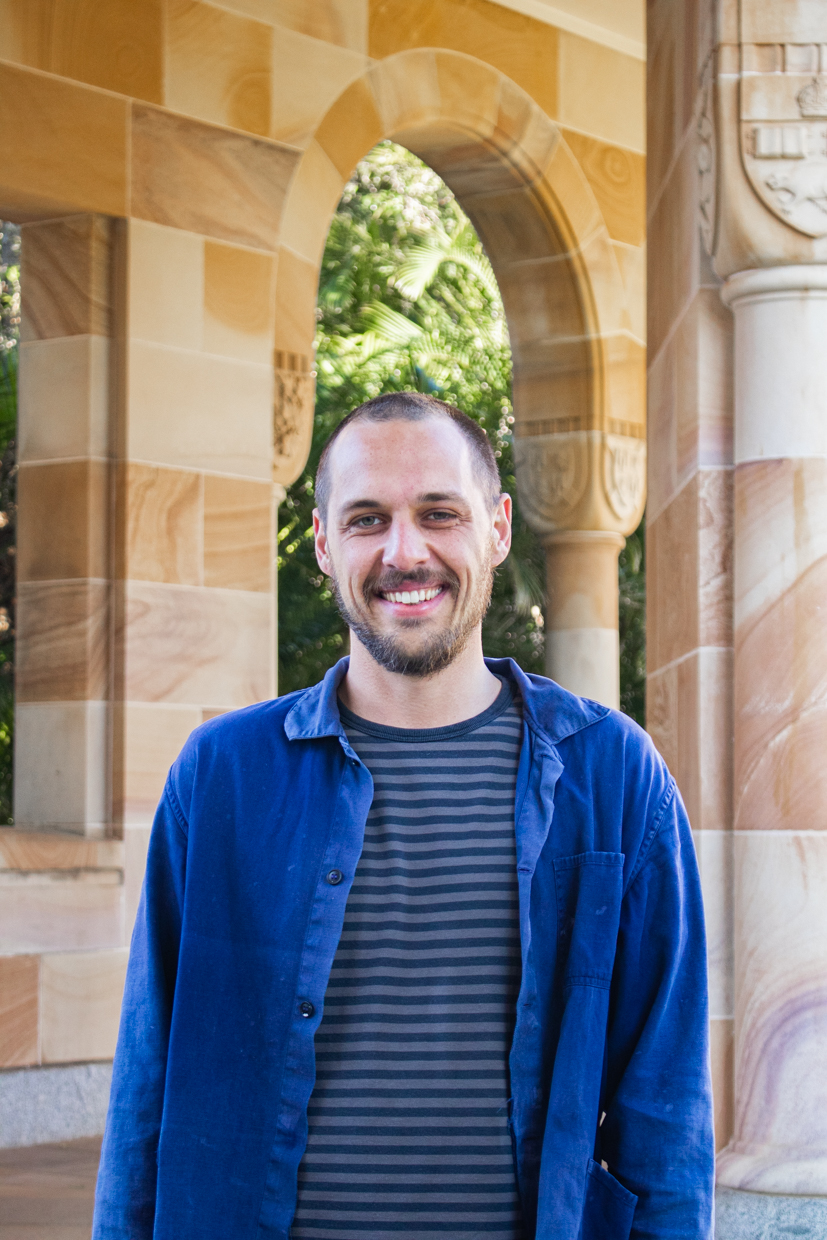
Kullilli and Wakka Wakka man Dr Maxwell Brierty will take his research on Indigenous philosophy and history to Harvard University, thanks to an American Australian Studies Scholarship.
Currently a Postdoctoral Research Fellow in The University of Queensland’s School of Historical and Philosophical Inquiry, Max won the elite Scholarship to attend Harvard as a Visiting Scholar for one year to delve deeper into his research.
He is excited to see what direction he will take with such exposure to new collections and to colleagues whose work he really admires.
“I will have an opportunity to reflect back on Australia while also examining one of the most significant collections of Aboriginal cultural materials outside of Australia at Harvard University’s Peabody Museum of Archaeology and Ethnology,” Max said.
As an important mentor who also shares ancestral ties with the Wakka Wakka nation, HASS Associate Dean (Indigenous Engagement) Associate Professor Sandra Phillips is excited for Max to take his studies abroad.
"Max is carving out space for significant and innovative research in the humanities.
"As far as I know, he is the first Indigenous person to be conferred a PhD from UQ's School of Political Science and International Studies, and his postdoctoral research in the disciplines of history and philosophy expands possibilities in both," Associate Professor Phillips said.
Max’s interests in this research area are deeply grounded in generations of lived experience.
“It stems back to trying to better understand the collision between Ancient and Modern worlds which has been underway since colonisation began in Australia.”
His PhD examined the role of restraint in Australia’s colonisation right from the first British colony in Sydney to the present.
“This was a dark topic to engage with, but it was critical to understanding colonialism here in the present-day, particularly when you look at Australia’s prison system where First Nations men, women and children are so over-represented,” Max said.
“I am now writing my thesis into a book entitled When Moderns Dream, which draws on Indigenous philosophy to tell this story in a more powerful way.”
Throughout his Fellowship, Max has also been teaching in Australian History, Philosophy and Studies in Religion at UQ.
At Harvard, Max will be writing a series of essays that look at Australia from afar, while exploring an Indigenous philosophy of truth, place and time.
He will publish these essays as another book he is calling ‘Mapa Wiya’ (‘No Map’), which is inspired by the words of the late Anangu artist Mumu Mike Williams.
Max said the power of Australian Indigenous philosophy is something that many First Nations people know all too well.
“We live it, but it is something that remains to be fully appreciated in the world of academia.”
HASS Executive Dean Professor Heather Zwicker is also very proud of Max’s success.
“He continues to break ground on interdisciplinary work that informs critical teaching pedagogies and the basis for new and innovative scholarship,” Professor Zwicker said.
Max sees the work he will be undertaking at Harvard as an extension of the works of many of his mentors and friends.
“I’m extremely excited to build on the works of UQ’s Aunty Mary Graham and Morgan Brigg, as well as Stephen Muecke a bit further afield.”
When Max returns from the US, he plans to continue his research on Indigenous philosophy and history at UQ.
The American Australian Studies Scholarship is funded by the American Australian Association and the Aurora Foundation.



